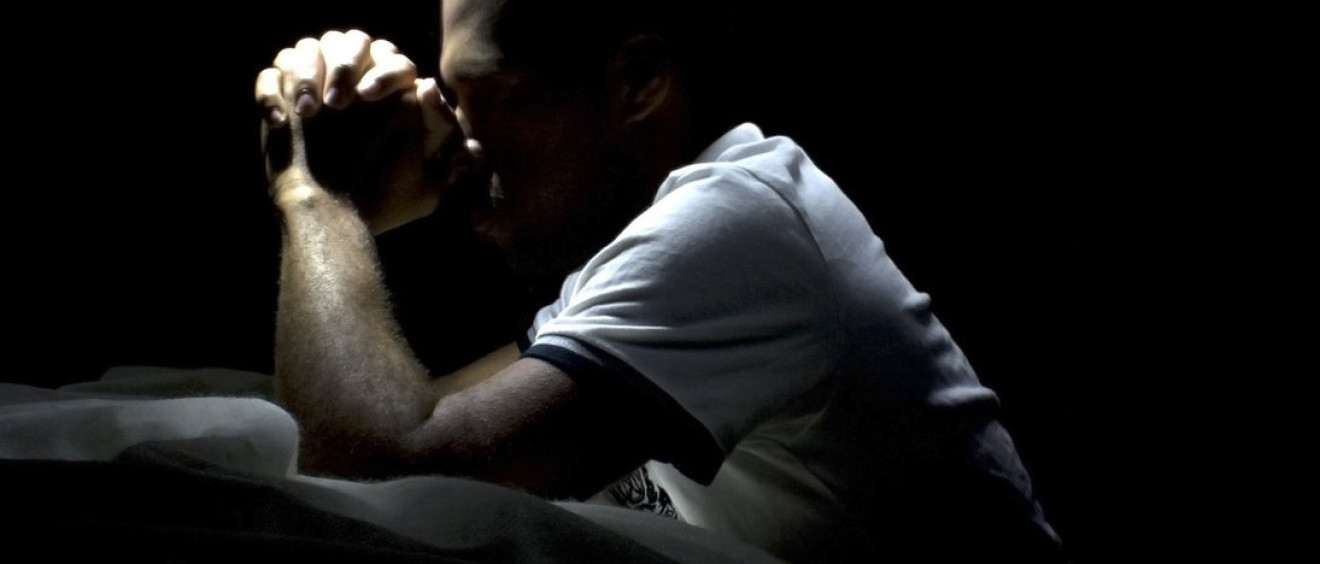
It’s Time To Pray!
Acts 12:1-19, 24
1. We need to pray!
Peter had been put into prison (v. 5). And when you get into the specifics, the situation was even bleaker. Not only was Peter in prison, but he was in the high security zone. Four squads of soldiers were detailed to guard him (v. 4). When he was sleeping, he was placed between two soldiers bound with two chains (v. 6); does that remind you of a Houdini stunt? Further, guards were placed squarely in front of the door. Additionally, there were two sets of guards and an iron gate separating Peter from freedom (v. 10).
What could the church do about this situation? Peter was part of the church, not a military group. The church had no human means to get Peter out of prison. No Special Forces unit or helicopters to stage a rescue attempt. No means whatsoever at their disposal. They were absolutely helpless. This is why they needed to pray.
Similarly, sometimes we are in situations where we have no recourse. No human help. And we too need to pray.
At Redeemer Ann Arbor, we want to see a church planted in Ann Arbor, but we face a very tall mountain. We too need to pray.
2. The church did pray.
But prayer for him was being made very fervently by the church to God (v. 5). But prayer! Prayer was necessary, and prayer was offered. In the impossible situations in life, things begin to change when we pray.
Note the prepositions.
- “for him” – The focus of prayer was crystal clear. The church knew exactly what they were praying for. Peter was in prison. Their prayer was pointed, not vague. There was no “bless the missionaries” or general requests aimed upward in shotgun fashion. And so, when we are in a position of acute need, we know exactly what we are praying for.
- “by the church” – Who else was going to pray for Peter? They were the only ones in a position to pray. No one else knew the situation; no one else cared. If the church didn’t pray for Peter, who was going to? Likewise, we must pray when we feel our needs. Who else will take our needs to God if we do not?
- “to God” – Who could help in this situation? Only God. What was their recourse? Where could they go? Where could they look? And we, at Redeemer Ann Arbor, will take our desires and our needs to God. And you, whatever is confronting you, can take your situation to God.
3. Bewilderment.
More faith would have had a clearer understanding of the situation. More faith would not have been so bewildered. More faith would have recognized the deliverance that God was working for Peter as the angel walked him out of prison. But often we don’t have more faith, or even the faith that anyone might have expected that we would have. But God still delivers. God still answers prayer, though our faith is so small and so weak. The answer to our prayers does not depend on the strength of our faith. It depends on God, not on our weak faith.
- Peter was bewildered. “He did not know…what…was real” (v. 9). “Now I know for sure that the Lord has sent forth his angel and rescued me” (v. 11). Wasn’t Peter expecting the church to pray and God to answer? After all, Peter had recently preached at Pentecost and had seen radical results from his preaching. Peter had seen signs and wonders, the healing of the lame man at the temple gate (3:7), remarkable interventions by God (4:13, 18 and 5:1-11), and more. Why wouldn’t he expect God to intervene? But Peter was completely surprised at God’s deliverance.
- Rhoda was bewildered. Though she knew it was Peter knocking, she did not open the gate for him (12:14). Now for Rhoda, it was not really because of unbelief, but because she was so happy, she just lost her bearings (“because of her joy,” v. 14). She announced to the praying church that it was Peter standing at the gate, which means she had a better grasp on reality than Peter did. Plus she “kept insisting” that it was Peter, despite the fact that the praying church wasn’t believing enough to accept the obvious fact that God had answered their prayers and Peter was standing at the door.
- The Church was bewildered. They said to Rhoda that she was out of her mind (12:15). Their faith wasn’t strong enough even to acknowledge the possibility that God had answered their prayers, and they were the ones praying!
What the takeaways?
- We must pray. There is no one else to do it.
- We must pray. There’s nothing else we can do. God wants to reduce us to prayer. It’s not about our plans, our programs, our personalities, our giftedness, or our networks. God wants to teach us to pray, desperately, urgently, fervently. We will never pray like this when we can solve our own problems.
- Our faith isn’t enough. Our faith is too weak. God must do it. The answers to our prayers will not come because we prayed. Only God can do it. But God does intervene when we pray. We must pray.
